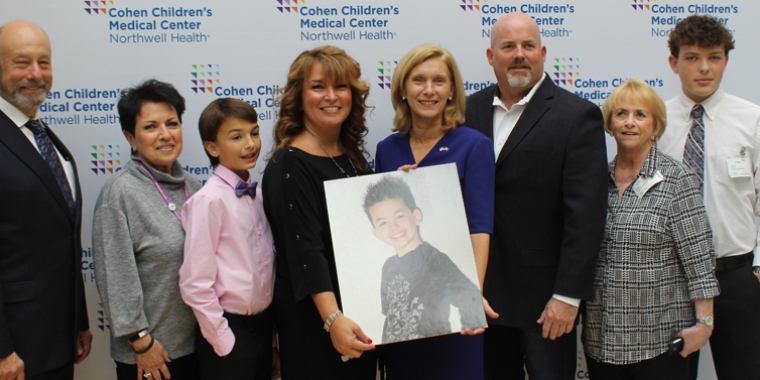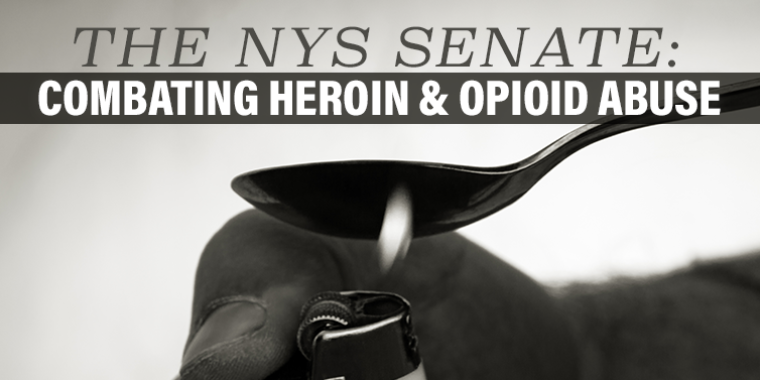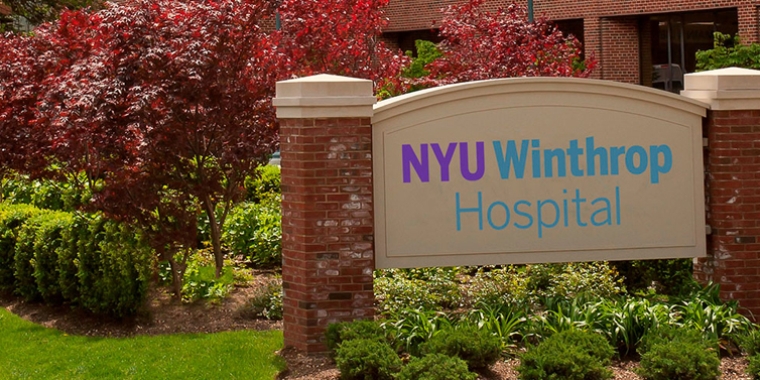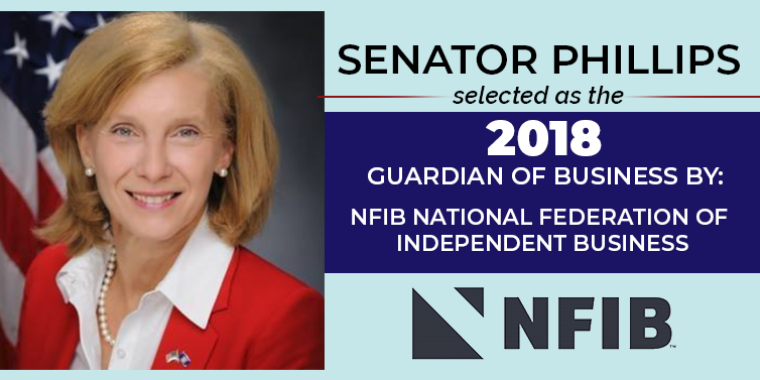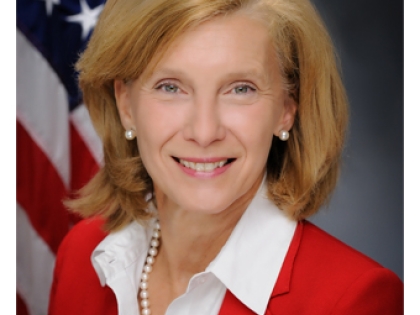
Senator Phillips Calls On Governor To Sign Presumptive Cancer Legislation For Volunteer Firefighters
September 27, 2017
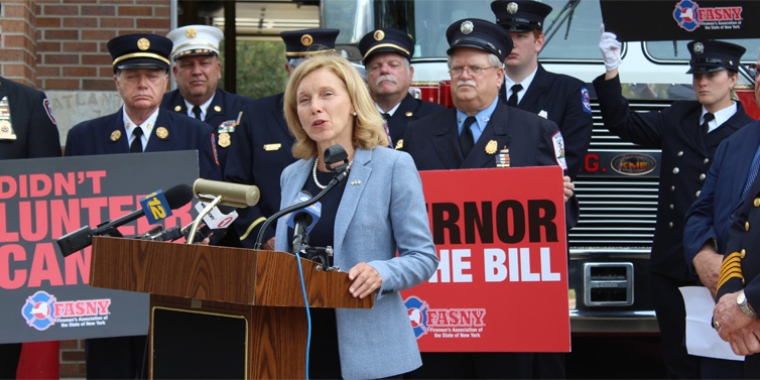
Senator Elaine Phillips, joined by members of the Fireman’s Association of the State of New York (FASNY), the New York State Association of Fire Chiefs, the Association of Fire Districts of the State of New York, and local firefighters, today called on the Governor to sign legislation that provides presumptive “gap” coverage to volunteer firefighters diagnosed with certain types of cancer.
The legislation, which Senator Phillips co-sponsored, passed both the Senate and Assembly earlier this year and is waiting the Governor’s signature to become state law.
“Our volunteer fire services are a crucial part of Long Island’s culture and community, and New York owes these brave men and women all the help and support they need,” Senator Elaine Phillips said. “Presumptive cancer coverage is an essential benefit for today’s volunteer firefighters, and I am proud to stand alongside the brave men and women who dedicate their lives to protect our families. It is my hope that the governor will sign this legislation into law without further delay.”
The legislation would provide enhanced cancer disability benefits to volunteer firefighters who have served for at least five years as an interior firefighter and successfully passed a physical examination upon entering the volunteer service that initially did not show any signs of cancer.
If a volunteer firefighter develops cancer – including melanoma, digestive, hematological, lymphatic, urinary, prostate, neurological, breast and reproductive cancers – they would be eligible for a lump sum payment of $25,000. If the volunteer becomes totally disabled, a monthly benefit of $1,500 per month would be payable up to 36 consecutive months. In the case of death, their family would be eligible for an accidental death benefit in the amount of $50,000.
According to the Fireman’s Association of the State of New York, studies have found that firefighters face a higher rate of cancer than the general population. This is due to today’s homes having far more products such as cell phones, televisions, computers and petroleum-based furniture items, all of which release dangerous carcinogens when they burn. Exposure to these toxins during a fire increases firefighters’ risk of developing cancer.
Share this Article or Press Release
Newsroom
Go to Newsroom